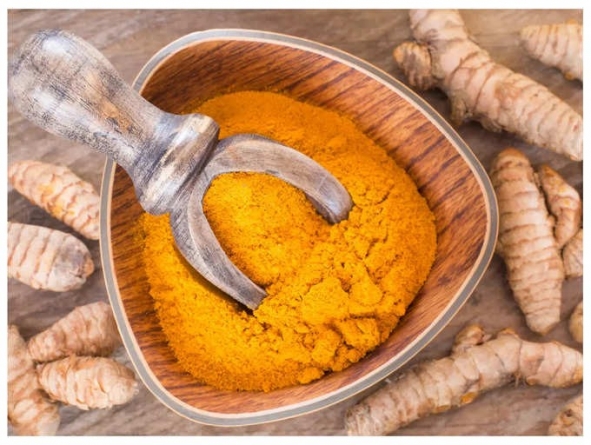-
TORONTO: India strongly protests ‘Khalistan’ slogans at a public event attended by Canadian leaders - 6 hours ago
-
TOKYO: Japan Offers Scholarships To Indian Students Pursuing Research - 1 day ago
-
ZAGREB: India-Croatia Foreign Office Consultations (FOC) - 1 day ago
-
BUCHAREST: Government Of Romania To Offer Scholarships To Indian Students - April 30, 2024
-
WASHINGTON: India Now Second-Largest Source Country For New Citizens In US- Report - April 30, 2024
-
LONDON: Run For Modi” Event In London To Drum Up Support For PM Modi - April 29, 2024
-
LONDON: Indian-Origin Candidate On How He Plans To Win London Mayoral Polls - April 28, 2024
-
HARVARD: No Country Is Perfect”: Physics Wallah Urges Indian Students At Harvard, Stanford To Return - April 27, 2024
-
CALIFORNIA: PM Modi Put India On World Map As Credible Innovator- IT Industry Leaders - April 26, 2024
-
WASHINGTON: Indian Students Bag NASA Awards For Human Exploration Rover Challenge - April 25, 2024
COLOMBO: Can turmeric prevent viral infections? Healthy recipes inside
COLOMBO: How turmeric can prevent viral infection?
Indian
spices are a treasure trove of miracles! Since ages, turmeric has been used as
a secret ingredient in ancient medicines, this is because of its potent
medicinal properties. The presence of a compound called Curcumin in turmeric
makes it great for boosting immunity and building resistance against seasonal
infections and allergies.
According
to a recent study published in the Journal of General Virology, it was found
that Curcumin may help in eliminating certain viruses and protect from
infections.
The Research
A study published in the Journal of General
Virology showed that curcumin can prevent Transmissible gastroenteritis virus
(TGEV) — an alpha-group coronavirus that infects pigs — from infecting cells.
At higher doses, the compound was also found to kill virus particles.
Infection
with TGEV causes a disease called transmissible gastroenteritis in piglets,
which is characterised by diarrhea, severe dehydration and death. TGEV is
highly infectious and is invariably fatal in piglets younger than two weeks,
thus posing a major threat to the global swine industry. There are currently no
approved treatments for alpha-coronaviruses and although there is a vaccine for
TGEV, it is not effective in preventing the spread of the virus.
To
determine the potential antiviral properties of curcumin, the research team
treated experimental cells with various concentrations of the compound, before
attempting to infect them with TGEV. They found that higher concentrations of
curcumin reduced the number of virus particles in the cell culture.
The Findings
The
research suggests that curcumin affects TGEV in a number of ways: by directly
killing the virus before it is able to infect the cell, by integrating with the
viral envelope to ‘inactivate’ the virus, and by altering the metabolism of
cells to prevent viral entry. “Curcumin has a significant inhibitory
effect on TGEV adsorption step and a certain direct inactivation effect,
suggesting that curcumin has great potential in the prevention of TGEV
infection,” said Dr Lilan Xie, lead author of the study and researcher at
the Wuhan Institute of Bioengineering.
Healthy way to consume it
Curcumin
has been shown to inhibit the replication of some types of virus, including
dengue virus, hepatitis B and Zika virus. The compound has also been found to
have a number of significant biological effects, including antitumor,
anti-inflammatory and antibacterial activities. Curcumin was chosen for this
research due to having low side effects according to Dr Xie.
They
said: “There are great difficulties in the prevention and control of viral
diseases, especially when there are no effective vaccines. Traditional Chinese
medicine and its active ingredients are ideal screening libraries for antiviral
drugs because of their advantages, such as convenient acquisition and low side
effects.”
The
researchers now hope to continue their research in vivo, using an animal model
to assess whether the inhibiting properties of curcumin would be seen in a more
complex system. “Further studies will be required, to evaluate the
inhibitory effect in vivo and explore the potential mechanisms of curcumin
against TGEV, which will lay a foundation for the comprehensive understanding
of the antiviral mechanisms and application of curcumin” said Dr Xie.
























